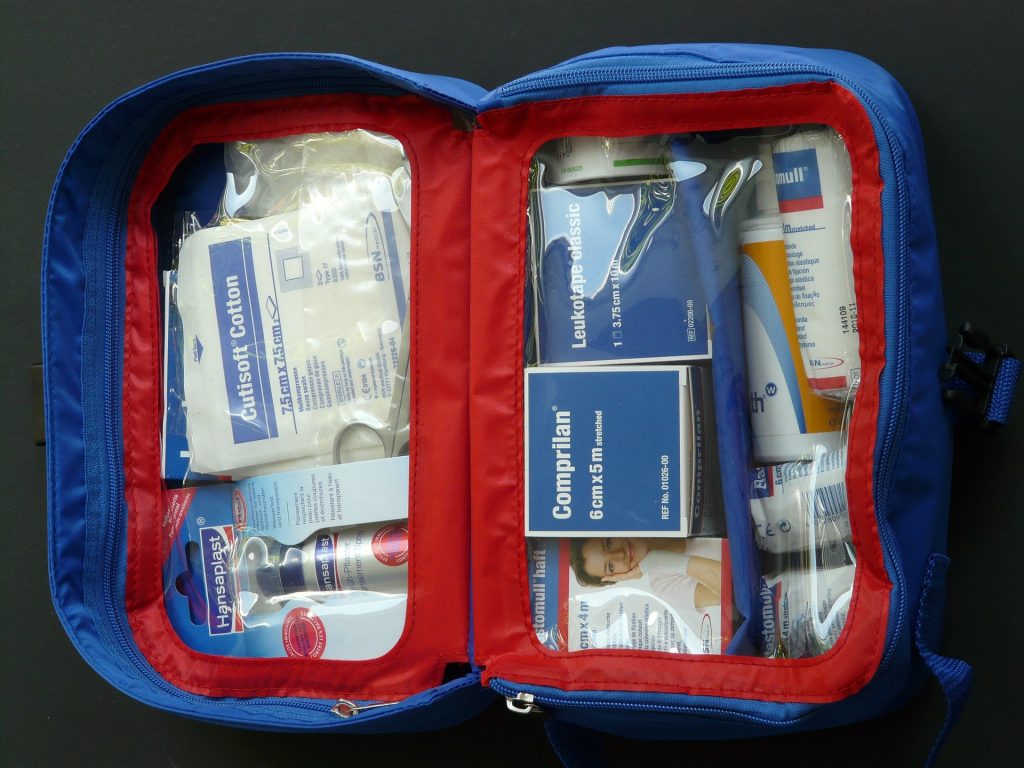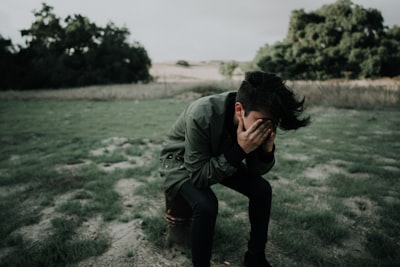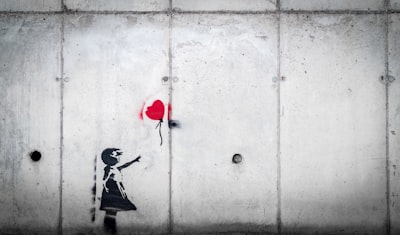7 Ways to Patch Yourself Up When No One Else Can See Your Pain
When someone falls and cuts himself or herself, we all know that the first thing we should do is clean the wound and stop the bleeding. But do we know what we need to do when someone is experiencing some emotional trauma?
So often we neglect or hide our emotional pain. No one can know how weak we are. We should be able to tough it out and get over it. But no one would ask you to run a marathon on a broken leg. No one would tell you to “walk it off.” The same needs to be true of our emotional health. Elder Holland said that “there should be no more shame in acknowledging [emotional health challenges] than in acknowledging a battle with high blood pressure or the sudden appearance of a malignant tumor.”
Emotional First Aid

Psychologist Guy Winch talks about how to practice emotional first aid and its importance. He says that anyone who has experienced emotional injuries knows that they “can be just as crippling as physical ones.” He then gives 7 basics of emotional first aid.
1. Pay attention to emotional pain
It is so important that we learn to recognize when we are in emotional pain. Pain is the body telling your brain that something is wrong. One time I fell and hurt my wrist. I thought it was just another sprain. After three days I mentioned to my mother that my wrist still hurt. She took me to the doctor, I got some x-rays, and it turned out my wrist was broken.
Pain told me to investigate my injury further. Emotional pain is no different. If the pain of loss, rejection, or loneliness doesn’t pass in a reasonable amount of time, it needs to be investigated further. This could mean talking to a trusted friend or family member or seeking professional health. No one would blame you for going to see a doctor for physical pain. No one should blame you for seeing a doctor for emotional pain either. Plus, pain can lead to physical problems as well.
2. Redirect your gut reaction when you fail
Emotional wounds can lead to more trauma when we let ourselves spiral downward into despair. Dr. Winch says, “Failure can often drive you to focus on what you can’t do instead of focusing on what you can. That can then make you less likely to perform at your best, which will make you even more focused on your shortcomings, and on the cycle goes.”
But we can learn to control our gut reactions. We don’t have to be a slave to our emotions. As we examine our own lives, we can learn to understand our triggers and gut-reactions. From there it is the simple task (in theory) of retraining ourselves to think differently.
3. Monitor and protect your self-esteem
Sometimes we, as members of The Church of Jesus Christ of Latter-day Saints, are so afraid of succumbing to pride that we go too far in the other direction. But there is such a thing as a healthy level of self-esteem. Dr. Winch even calls self-esteem “an emotional immune system.”
When we suffer from low self-esteem, we are more likely to talk negatively to ourselves and make out faults bigger than they actually are. Self-compassion is the cure for a compromised emotional immune system. When you are feeling down on yourself, Dr. Winch suggests the following exercise: imagine that a friend is feeling bad about themselves for similar reasons you are feeling bad about yourself. Write a compassionate and loving email to them full of support. Then read it over again. That is what you should be saying to yourself.
4. When negative thoughts are taking over, disrupt them with positive distraction.
Did you know that even a 2-minute distraction can keep you from giving in to negative thoughts? It’s true! People often say that you shouldn’t dwell on negative thoughts, but it is so hard to not replay that stupid thing you said or did over and over.
So next time the instant replay is getting you down, try doing a small crossword puzzle or look up cute pictures of dogs. A small distraction keeps you from focusing on the negative feelings and soon the urge to reflect on the negative can pass.
5. Find meaning in loss
Okay, this sounds like a piece of bad advice you get from someone who wants you to get over yourself. But this can work out. Dr. Winch says, “Loss is a part of life, but it can scar us and keep us from moving forward if we don’t treat the emotional wounds it creates.”
Part of treating loss is accepting it. We can come to accept loss if we understand what we have gained from it. Losing a close friend or family member is hard, but maybe you have come closer to others as a result or learned how much others care about you.
6. Don’t let excessive guilt linger
I will be the first one to admit that I tend to blame myself for everything that goes wrong in my life—even when I had absolutely no influence on the thing that went wrong. Guilt has its place, but excessive guilt does not. Dr. Winch says that excessive guilt “wastes your emotional and intellectual energies, distracts you from other tasks, and prevents you from enjoying life.”
If we are feeling guilty about something, it could mean that we haven’t offered up a truly empathetic apology. When you offer an empathetic apology, you simply admit that you were in the wrong and that you hurt the other person. You don’t make excuses or try to explain your actions.
7. Learn what treatments for emotional wounds work for you
This is SO important. And, like physical wounds, different emotional wounds can require different treatments. Sometimes all you need is a hug from someone. You don’t need them to “fix” the problem.
It is also important to let the person that is hurt tell you what they need. Some people are left feeling more pain after someone tries to “help” them because the other person didn’t actually listen. Acknowledging that someone is in pain without trying to take it away can be an incredible way to help.
Practice makes perfect
As with anything, practice makes perfect. It takes time and experience to learn which treatments will make you physically feel better, and the same is true emotionally. Elder Holland offered his advice when he said, “Broken minds can be healed just the way broken bones and broken hearts are healed. While God is at work making those repairs, the rest of us can help by being merciful, nonjudgmental, and kind.”
Pay attention to those in your life who may be suffering from emotional wounds. Treat them as you would someone who has been physically hurt. Acknowledge their pain and work with them to find the appropriate treatment. Don’t push them into something that would impede their recovery. And above all, be kind.
How do you treat your emotional wounds? Let me know in the comments below!





